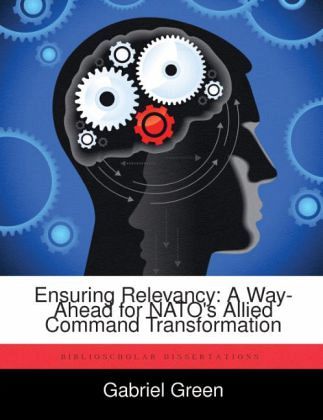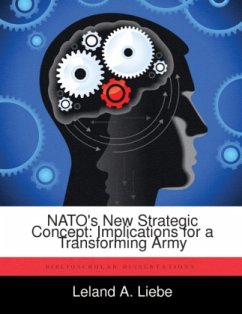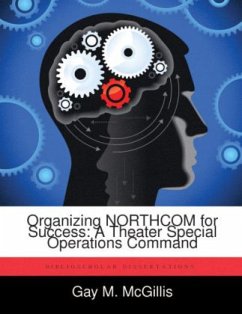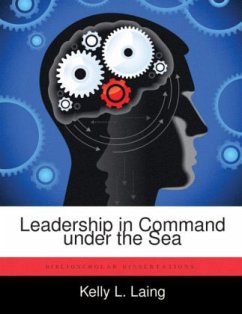
Ensuring Relevancy: A Way-Ahead for NATO's Allied Command Transformation
Versandkostenfrei!
Versandfertig in über 4 Wochen
52,99 €
inkl. MwSt.

PAYBACK Punkte
26 °P sammeln!
The world has changed dramatically since the Washington Treaty of 1949 established the North Atlantic Treaty Organization (NATO). The context of nontraditional threats, operational fatigue, increased membership, and fiscal austerity provides an opportune moment to assess Allied Command Transformation's (ACT) role in supporting Alliance-wide transformation. As one of NATO's two strategic commands, ACT has existed for eight years with the following three strategic goals: provide appropriate support to operations, lead NATO military transformation, and improve relationships, interaction, and prac...
The world has changed dramatically since the Washington Treaty of 1949 established the North Atlantic Treaty Organization (NATO). The context of nontraditional threats, operational fatigue, increased membership, and fiscal austerity provides an opportune moment to assess Allied Command Transformation's (ACT) role in supporting Alliance-wide transformation. As one of NATO's two strategic commands, ACT has existed for eight years with the following three strategic goals: provide appropriate support to operations, lead NATO military transformation, and improve relationships, interaction, and practical cooperation with partners. Key successes include improved doctrine, better training methods, positive feedback from operational support, and an enhanced capability development process. Despite these gains, within the context of new threats and constrained resources, there is room for improvement. ACT can demonstrate its relevancy by doing four things. First, ACT should increase cooperation with Allied Command Operations to enhance NATO's mission effectiveness. Second, ACT should champion capability development by promoting interoperability, interdependence, and the comprehensive approach. Third, ACT should continue studying emerging issues like counterterrorism, failed states, global commons, energy, etc. as NATO's military think-tank. Finally, ACT should actively market its products to the nations.














